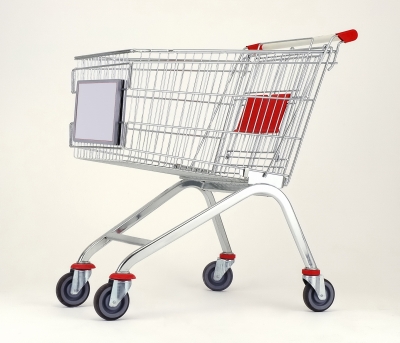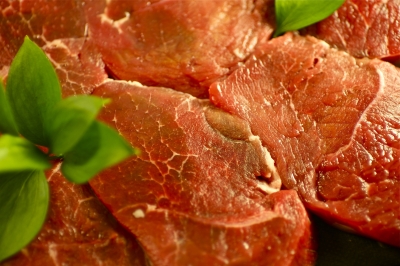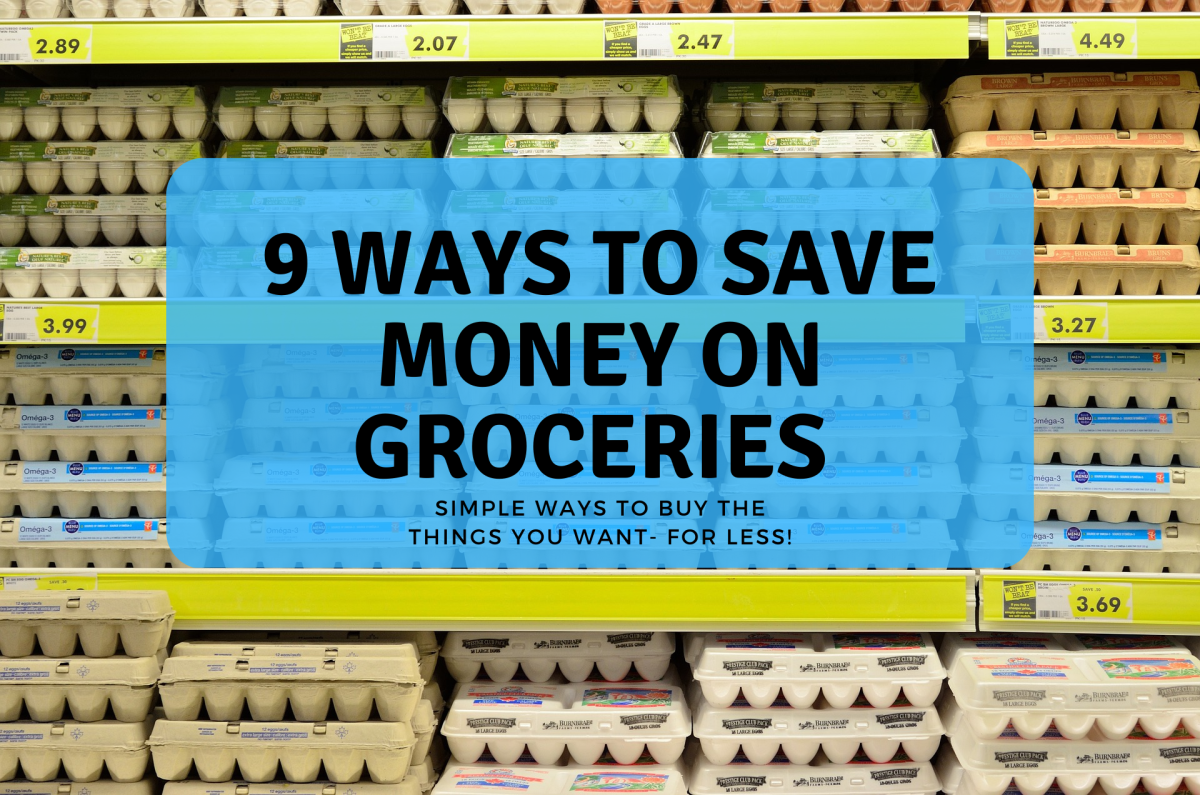- HubPages»
- Personal Finance»
- Frugal Living»
- Coupons
How To Trim The Fat Off Your Grocery Bill
HOW TO SAVE MONEY ON GROCERIES
Since we need to eat and eat regularly, saving on groceries is one of the most important aspects of financial management to look at when it comes to cutting costs. That is unless you're filthy rich and don't have to worry about budgeting for food!
The average household budget for food depends of course on how many people you're feeding and taking into consideration such things as special diets, allergies, etc.
The best philosophy to have in terms of saving money on food is this.....things have to go on sale eventually. The other part of that philosophy is to work hard at cutting as much fat from your food bill as possible.
This will unerringly help you financially. Especially if you're feeding a family or you're on a fixed income.
Savings of any measure is money in the bank.
Let's look at some great ways to make your food budget work better.

TIPS ON SAVING MONEY ON THE GROCERY SIDE OF LIFE
Although many of these things are not new ideas, they still have merit, no matter how many times we hear them or apply them to our own spending style.
- Coupons are not a scam. Couponing can actually save you a ton of money. If you have to pay for coupons, I think the idea is probably not a good one. There are tons of coupons on products, in the paper or even on company websites. If you have to sign up to receive them, that's perfectly great but if you have to pay to get coupons, totally defeating the purpose in my opinion. I have couponed myself although in recent years, products we now use because of dietary considerations have made it harder to do. But at one time, I saved over $50 on my grocery bills all the time just by couponing. I have friends who are literally pros at couponing. One of my girlfriend's husband is the all-time winner!
- Rebates and frequent shopper programs/rewards. Use whatever you can to reduce your final price at the checkout stand. If you have rebates, and if you really truly like the products, use them. Write to the company via email and ask if they have some coupons you don't know about or haven't seen....you never know unless you ask. Years ago, when we didn't have the Internet and email, I wrote to companies and for the price of a stamp, got back tons of coupons that I could use all the time. It pays to "keep in touch" with companies you support.
- Generic is not a bad word. If you can find generic in anything, compare the ingredients and then I encourage you to compare the price. It's not going to hurt anyone or anything if you use generic! Generic almost across the board is better budget wise because it costs less. The only time not to buy generic is if a name brand is on super sale and is lower in price than the generic. Using generic items is like putting money back in your pocket.
- Shopping around. It's a fact when it comes to grocery shopping that if you want to save money, you're not going to be able to convenience shop. You're going to want to sale shop or price compare shop if you truly want or need to save money. It's that simple. You can always ask a store to match the price you saw or paid at another store. If they're smart and totally into customer satisfaction, you'll get price matching. Then you'll also know for sure that that's the place you want to spend more of your bucks. They should match the price of another store if they want your business. Negotiate everything you possibly can!
- It's a numbers game. I'm always trying to do the numbers in my head. If this product is 10 ounces and that product is 12 ounces, which is the better deal? Come to find out the answer was there all the time right in front of me. It's called unit pricing. Oh duh! You can find the price per unit right on the shelf most of the time. Of course if you're looking for nutritional information as well, once you decide for yourself which is the better deal, then you also have to decide which is the better meal.

MORE WAYS TO SAVE ON GROCERIES
- A label is just a label. Advertisers have been messing with us for years so it should come as no surprise at all that labels say one thing and products say another. You do have to decide for yourself which are the healthier products for the money and don't take the advertising word for it. Do the math, do the fat calculations, do the cholesterol figuring. Or ask a nutritionist or research it on the Internet. Find out which product is better and then shop around to find the best price for what you want.
- Everything goes on sale sooner or later. This is my theory and I'm sticking to it. If you find it on sale, buy it in greater quantities. Store it, freeze it, do whatever you can to buy in bulk and save it for another day. Divide it up when you get home if you're freezing things like meats or divide into smaller quantities. The fact is, you'll save lots of money if you can buy it on sale...and even more if you can buy in bulk. Buy as much as you can without having it spoil or go to waste. Even consider dividing it with friends and family. You will save money!
- Attitude and timing is everything. If you go shopping when you're hungry or tired, you're going to spend ridiculously more money than you'd like to. If you're depressed or just had something bad happen, probably the same scenario. If you don't have a list and you just buy what you think you need, you're going to end up punching a hole in your grocery budget. The best plan experts say is to have a weekly menu, then compile a list that you do not deviate from when you shop. There is the caveat that if you see a great deal on something you use all the time that you go for it. However, if you refrain from buying on impulse and shopping at times when you're not at the top of your game, you will save dough!
- Invest in a freezer. If you really want to save money on groceries, you'll figure out a way to buy a small freezer. Then you'll buy in quantity and freeze it (all labeled of course so you manage to use it before it goes bad). You can freeze all kinds of things but you can also freeze meals ahead. Cook in quantity and then have small containers at the ready say from the Dollar Store. Pop them into the freezer for a quick meal another day. Freeze things like fruits or vegetables you've grown or bought at incredible prices.
- Learn how to can. Strange as it may
sound, you can put up food from your own garden or stuff you bought on sale
throughout the seasons that are incredibly priced and will keep on your shelves
for years. Just make sure you know proper and safe canning techniques and use the recommended temperatures and equipment to do it safely. This is a technique generations before us had for using everything they had to the utmost degree. It still works! I've canned everything from applesauce to peaches, green beans to jams. It is such a wonderful treat to have something that isn't in season at the moment and is a fantastic way to save money. Have a canning party with someone you like...it's a great way to put up many jars and divide the work.
- Keep your eyes on the scanner. Make sure that things are rung up properly and even if you're watching purchases being rung up, don't leave the store without looking at your receipt. Make sure you weren't overcharged for anything or that you received money off for coupons. If you don't check your receipt and go home only to discover that you were overcharged, go back and have them make it right. Also keep your receipts as a record of what you spent for what. This is a great way to track expenses and keep a grocery journal.
- Know the value of everything. Know
the best prices for produce during what season. Know what things are in season and out of
season. Know what "fair market value" is for anything that you buy and if you can't find it at one store, find it
somewhere else or even online. You
should never pay more than you need to for anything.

SHAVING MONEY OFF YOUR GROCERY BILL
Learning to cook meals simultaneously can also shave a lot off your grocery bills. It can also help you get the most from whatever you buy in terms of freshness. For instance, cooking a beef meatloaf at the same time as a salmon loaf will not only save on your utilities (because you only fired up the oven once instead of twice) but it will also help you save time by preparing two meals at the same time. Throw in a few baking potatoes for both meals and maybe even an acorn squash and you've really used your time and your resources most efficiently!
Remember that anything touched by human hands is going to cost you more money. Sure it's convenient to have your chicken skinned when you buy it but it takes only minutes to slip the skin off yourself. Compare the prices per pound on different meats and see if you can't buy less processed portions and do part of the processing yourself. Usually for instance a rib eye roast will cost less than rib eye steaks already cut up. You can cut the roast into steaks yourself and save money or you can even ring the butcher and have them cut it for you!
When it comes to saving money, it's recommended to avoid the processed food aisles altogether. Taking things like pop, chips, snack foods....again anything processed by human hands....out of your cart can only save you money. Processed foods of any kind are going to be your high ticket items and even with coupons...do you really need them? Think of it as trimming the fat from your budget but also as trimming the "fat" from your life in terms of eating more nutritionally.
Think about farmer's markets for buying fresh or local organic food markets. Sometimes they can be a little on the pricey side but some of them have great deals. Also consider shopping specialty stores such as Hispanic markets for certain items. They will cost you less and chances are, will be better quality.
Also remember to look up and look down. Most merchandising is done with things at eye level to maximize sales. Deals will be on top, on the bottom or on the sides of displays. Always check the ads before you go and while you're making up your menus and shopping list.
Consider going meatless at least one time per week and you'll save money. Build good vegetarian menus and use them intermittently such as meatless chili or a vegetable pasta. Make the most out of your meals by using your leftovers...either for lunch or for another meal.
In short, there are many ways to save on grocery bills. We can all do it with a little planning in advance and some money-saving techniques. For more ideas, check out the frugalchef.com for great ideas on free menus and more money-saving tips. See the video below!
If you have more ideas on how to save money on grocery bills, please share them with us all below in the comment section!
There is also a great website link left below in the comment section by Nora. Check it out for weekly deals in your area.
More Money Saving Hubs by Audrey Kirchner
- Bargain Shopping: How To Save Money Bible
HOW TO SAVE MONEY There are some rules across the board that apply to everything you purchase over your lifetime. I don't care if it's a new car or if it's new underwear. There are ways to save... - Money Saving Tips For Computer Users: How To Save Mo...
HOW TO SAVE MONEY ON COMPUTERS Computers are generally a large expense and one that weighs heavily on your mind when you go to purchase one. Especially if you're one of those people who doesn't buy a... - How To Save Money On Gasoline: Cutting Costs At The ...
HOW TO SAVE ON GASOLINE Surprisingly, there are some little known facts about gasoline that consumers should know. In a sagging economy, gasoline has become a major purchase these days and knowing the... - Home Maintenance Cutting Costs: How To Save Money Pa...
HOW TO SAVE MONEY PAINTING YOUR HOME EXTERIOR Any time you have someone do a job for you, youre going to end up paying at least twice as much for it. Painting the exterior of your house is such a... - Frugal Living Tips: How To Save Money By Maintenance...
HOW TO SAVE MONEY BY MAINTAINING YOUR HOUSE Want to avoid costly home repairs? While regular home maintenance won't always guarantee that you'll have a future of no home repairs to budget for, studies... - Saving Money On Moving: How To Save Money By Moving ...
HOW TO SAVE MONEY ON A MOVE - MOVE YOURSELF! I've actually moved several ways from place to place over the years. For a cross town move to a new apartment, I've loaded up my car and struggled with... - Money Saving Tips For Seniors: How To Save Money By ...
Aren't these old world fellows adorable? I'll bet they know the value of a dollar and then some! But for the rest of us.....there are a lot of ways that seniors can save money. As in most things in... - Frugal Living Tips: How To Turn Saving Money Into A ...
HOW TO MAKE FRUGAL LIVING A LIFESTYLE Saving money can become a science. I don't mean by that that saving money has to make you cheap by any means. I mean that by saving money across the board and... - Saving Money: How To Save Money By Using The Library
HOW THE LIBRARY CAN SAVE YOU MONEY Personally, I could live in a library. Growing up, we had TV but it was only sporadically for one reason or another. Books became my best friend at a very... - Money Saving Tips For Middle Age: How To Save Money ...
Outlining a living well is a simple task but one that many people, especially seniors, put off. Why? Because no one likes to think about dying. Do you think it's possible to save money by simply having a... - Money Saving Tips For Computer Users: How To Save Mo...
HOW TO SAVE MONEY ON COMPUTERS Computers are generally a large expense and one that weighs heavily on your mind when you go to purchase one. Especially if you're one of those people who doesn't buy a... - How To Save Money On Just About Everything: Saving M...
SAVING MONEY ON ENTERTAINMENT EXPENSES If you're like most folks today, you're trying your best to cut costs wherever you can to beat the high cost of living. Entertainment expenditures sometimes slip... - How To Save Money On Gasoline: Cutting Costs At The ...
HOW TO SAVE ON GASOLINE Surprisingly, there are some little known facts about gasoline that consumers should know. In a sagging economy, gasoline has become a major purchase these days and knowing the... - Energy Cost Saving Tips: How To Save Money On Window...
HOW TO SAVE MONEY ON DO-IT-YOURSELF WINDOW TREATMENTS The cost of decorating your home can be absolutely overwhelming. It seems today, the price of everything touched by human hands is over the top in... - Cooking Tools And Equipment: How To Save Money On Co...
HOW TO SAVE MONEY ON COOKWARE If you're a cook, no matter what level, you know that having the proper equipment can make you or break you in the kitchen. Learning to get the best price on things... - Saving Money On Painting: How To Save Money On Do It...
HOW TO SAVE MONEY WHEN YOU PAINT If you want to paint and also save money, there are many ways that you can do this. Consider this fact. Someone painting a room for you can charge anywhere... - Cutting Energy Costs: How To Save Money On Heating C...
HOW TO BRING DOWN ENERGY COSTS WITH WINDOW TREATMENTS There are some great products on the market that can cut your energy bills by a substantial amount just by investing in the proper window... - How To Save Money On Home Decorating: Do It Yourself...
SAVING MONEY ON DECORATING Lets face it.....decorating costs money. If you dont have a lot of money, can you still decorate and have your home decked out the way you want to? Of course you can! ...








